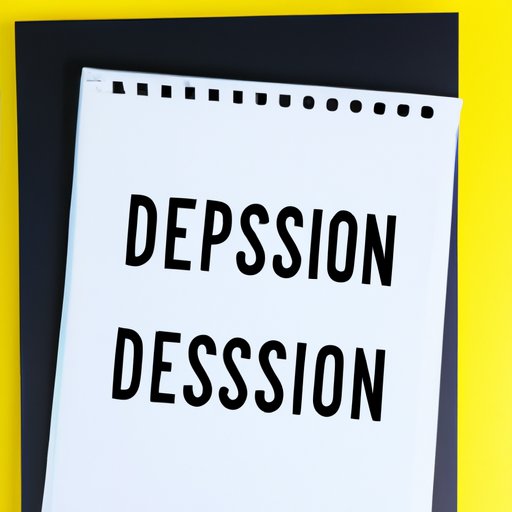
How Do You Know If You Are Depressed?
Depression is a mental health condition that affects millions of people worldwide. If left untreated, it can have serious consequences and impact many areas of life, including relationships, work, and physical health. Identifying symptoms of depression is important both for those who are experiencing it and their loved ones. In this article, we will discuss the common signs, physical manifestations, variations and combinations of symptoms, links between depression and other mental health conditions, types of depression, seeking help for depression, and personal accounts of depression.
Symptoms of Depression
Some of the common signs of depression include prolonged sadness, loss of interest in activities that were once enjoyed, fatigue, change in appetite, and suicidal thoughts. These symptoms can last for more than two weeks and impact daily life in significant ways. It is important to note that experiencing one or more of these symptoms does not necessarily indicate a diagnosis of depression, but it is important to take them seriously and seek help if they persist for an extended period.
Physical Manifestations of Depression
Depression can also manifest itself in physical ways that may not be immediately recognizable as associated with mental health. These can include restlessness, unexplained aches and pains, and difficulty sleeping or insomnia. If you are experiencing any of these symptoms, it is important to consider how they might be related to potential depression and seek help from a healthcare professional.
Variations and Combinations of Symptoms
Depression can appear differently on everyone, and even people with the same diagnosis may exhibit different combinations of symptoms. Some individuals may experience more physical symptoms than others, while some others may experience more emotional symptoms. It is important to recognize that depression can show up in different forms and not to overlook less recognizable symptoms that may be present.
Links between Depression and Other Mental Health Conditions
Depression can overlap with other mental health conditions such as anxiety or bipolar disorder. Recognizing these links can improve treatment of the conditions by identifying common factors that may be contributing to symptoms.
Types of Depression
There are different types of depression, including major depression, persistent depressive disorder, and seasonal affective disorder. Understanding the differences between them can help individuals acquire the right support and treatment for their specific condition.
Seeking Help for Depression
Getting appropriate care for depression is essential to managing the condition. Counseling or therapy can be an effective treatment, and support groups can provide the kind of support that individuals need. Talking to loved ones and other reliable resources can be vital in the recovery process.
Personal Accounts of Depression
Hearing from individuals who have experienced depression can provide some perspective on the common signs and symptoms of the condition. They can offer candid insights into the personal experience of depression and offer hope and guidance to those who may be struggling with similar experiences.
Conclusion
Identifying symptoms of depression is essential to managing and recovering from the condition. If you are or anyone you know may be experiencing depression, do not hesitate to seek help from a healthcare professional, therapist, or support group. Learning more about depression, its symptoms, and treatment options can bring relief and support in the journey to recovery.




